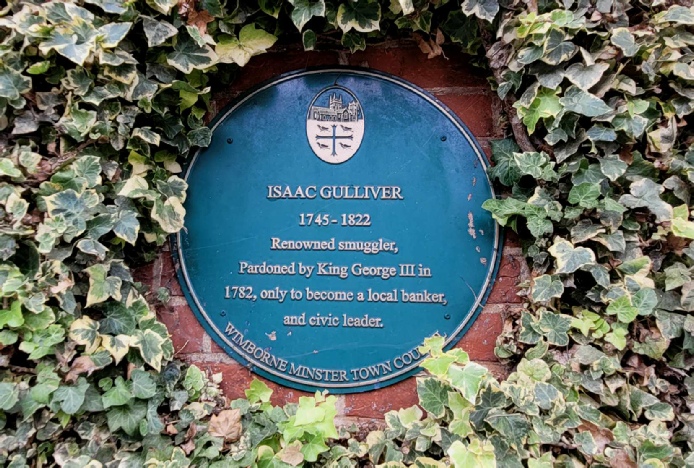History Trail





 Town Map
Town Map
Tree Trail



Isaac Gulliver
Isaac Gulliver was a well know figure in the Wimborne ( and wider ) area during the eighteenth century. This was at a time when the wars with Napolean had caused a rise in the price of wheat and alcoholic drinks -
and so evade government taxes.
The poor of the time were on very low wages and the idea of being able to make as
much in a night as might have been earned in a week was probably too much for
many smugglers -
way was the Excise Officers who were also know as “Preventive Men” but for Gulliver
it would seem, he was more imaginative, more daring and yet also respected life itself and the officers who sought to capture him. He gained their respect as his reputation f
or not killing others grew -
Isaac was born in 1745, and having a father who was also a smuggler he clearly learnt what was necessary and by his late teens he was already in league with another
smuggler Robert Trotman -
stolen and Gulliver escaped.
As Gulliver became more wealthy he pursued less risky business ventures and
speculated in property and became a lender for mortgages.
He effectively traded being a smuggler for being a banker.
By 1822 Gulliver owned land at Bourne Farm, Canford, but in that same year
on Friday, 13th of September he died and was interred in Wimborne Minster.
His estate details then showed that he leased and around 400 acres near Bournemouth and also that he property in Hampshire, Somerset and Wiltshire.
His house is marked with a blue plaque and is on the West Side of
West Borough -



///satin.supplier.popping






